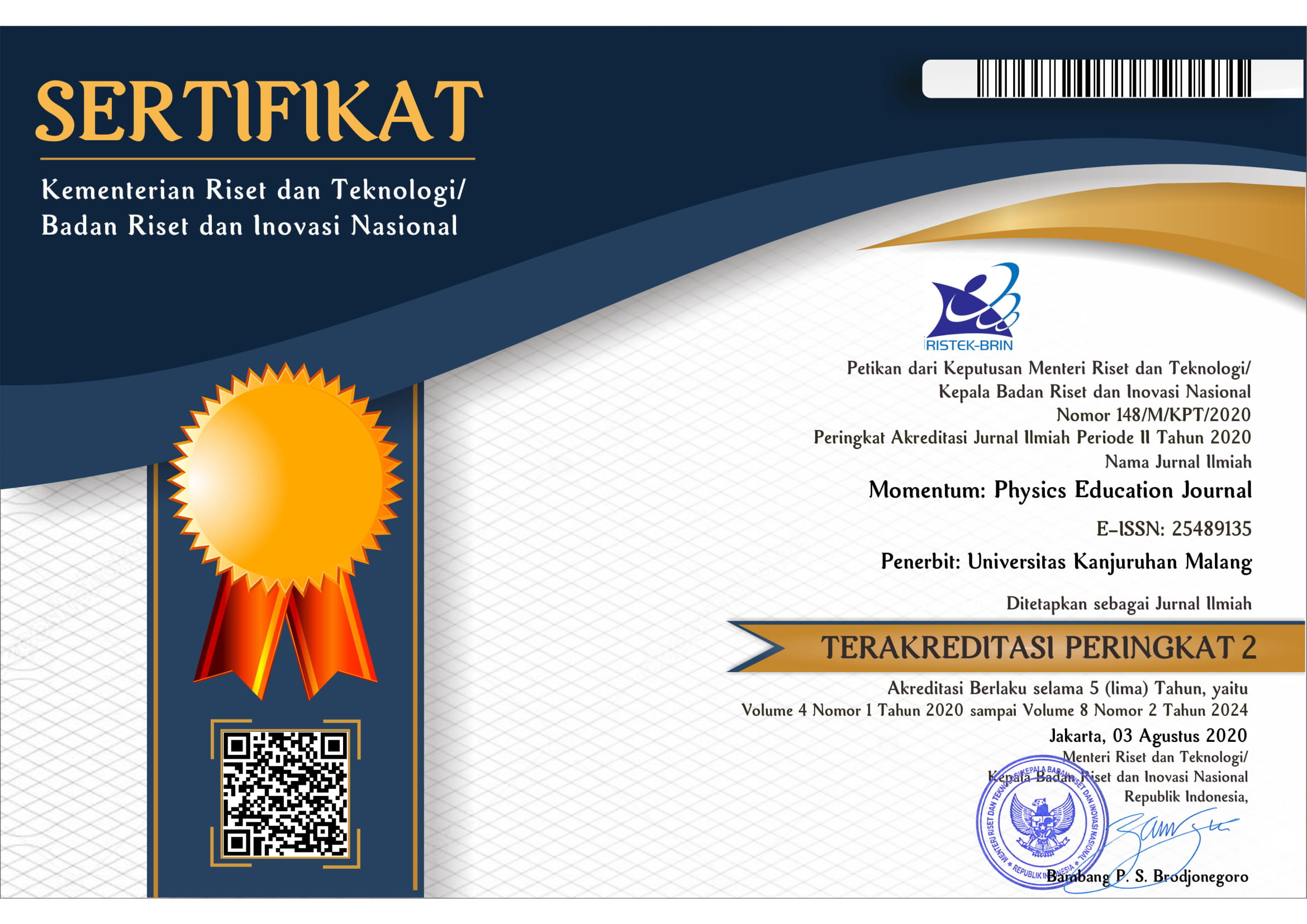FOCUS & SCOPE
Momentum: Physics Education Journal published all research results & studies of physics education, include:
-
Learning Physics: consisting of theoretical and empirical research studies on learning of physics. We invite manuscripts that investigate learning and its change and growth from various lenses, including psychological, social, cognitive, sociohistorical, and affective. Studies examining the relationship of learning to teaching, the physicsknowledge and practices, the learners themselves, and the contexts (social, political, physical, ideological, institutional, epistemological, and cultural) are similarly welcome.
-
Physics Education Innovation: innovation in the field of physics education or innovation to solve physics education problems. Innovation can be in the form of ideas, goods, methods, media, judgments that are felt or observed as new things for learning physics that are used to achieve educational goals or to solve problems in physics education.
-
Media Development, Learning Models, Assessment and Evaluation in Physics: studies in the development of learning media, learning models, and assessments in physics education. This study is in the form of a systematic presentation method or technique used by teachers / lecturers in organizing the experience of the physics learning process in order to achieve the objectives of learning through media, models and assessment of physics learning.
-
Physics Education Policy: including reports about the goals and/or underlying principles of policies adopted by government, interest groups, school districts, etc., and their effect on physics teaching and learning. Additionally, research on physics education policy relates to a critical examination of how theory, research, and practice of physics education are influenced by policy decisions.
-
Issues and Trends: consisting primarily of analytical, interpretive, or persuasive essays on current educational, social, or philosophical issues and trends relevant to the teaching of physics. This special section particularly seeks to promote informed dialogues about current issues in physics education, and carefully reasoned papers representing disparate viewpoints are welcomed. Manuscripts submitted for this section may be in the form of a position paper, a polemical piece, or a creative commentary
-
Physics Learning in Everyday Life: consisting of analytical, interpretative, or philosophical papers regarding learning physics outside of the formal classroom. Papers should investigate experiences in settings such as community, home, the Internet, after school settings, museums, and other opportunities that develop physics interest, knowledge or practices across the life span. Attention to issues and factors relating to equity in physics learning are especially encouraged.
Momentum: Physics Education Journal publishes comprehensive research articles and invited reviews by leading expert in the field. Papers will be selected that high scientific merit, impart important new knowledge, and are of high interest to physics and education physics community.


.png)
.png)
.png)
.png)





